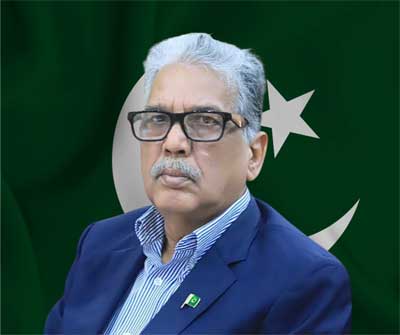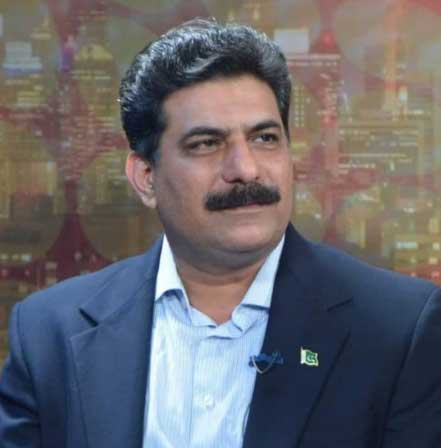
Leadership that made it possible
Quaid-i-Azam’s vision to Nawaz Sharif’s decision

On May 28, 1998, Pakistan etched its name into the annals of global history as the first Muslim-majority country and the seventh nation in the world to become a nuclear power. This monumental achievement, however, was not the result of a single act but the culmination of decades of visionary leadership, relentless commitment, and strategic foresight. From the foundational vision of Quaid-i-Azam Muhammad Ali Jinnah to the bold decision by Prime Minister Nawaz Sharif in the face of immense international pressure, Pakistan’s nuclear journey stands as a testament to the country’s resilience and the leadership that made it possible.
The Foundational Vision of Quaid-i-Azam
Muhammad Ali Jinnah, the founder of Pakistan, may have passed away long before the concept of a nuclear Pakistan took shape, but his emphasis on national sovereignty, self-reliance, and a strong defense laid the philosophical groundwork for the country’s eventual pursuit of nuclear capability.
Jinnah’s vision for Pakistan was of a sovereign state, secure and independent in its decisions, with the ability to stand tall among nations. Though he lived during a time when nuclear technology was still in its infancy and confined to a handful of superpowers, his unwavering belief in the strength and potential of the Muslim world inspired generations of Pakistani leaders to secure the country’s defense and strategic autonomy.
In one of his speeches to the armed forces, Jinnah famously stated, “You are the defenders of the nation. Maintain your unity, discipline, and faith.” That message, emphasizing strength and preparedness, would echo through decades of military and political decision-making, culminating in Pakistan’s nuclear program.
The Genesis of a Nuclear Dream
The seeds of Pakistan’s nuclear ambition were planted in the early 1950s and 60s. Initial efforts were focused on peaceful nuclear energy, with the establishment of the Pakistan Atomic Energy Commission (PAEC) in 1956. However, the geopolitical environment, particularly the Indian nuclear program and the 1971 dismemberment of East Pakistan, shifted the focus toward strategic deterrence.

The watershed moment came in 1974, when India conducted its first nuclear test, code-named “Smiling Buddha.” In response, then Prime Minister Zulfikar Ali Bhutto convened a meeting of top scientists and policymakers in Multan, declaring that Pakistan must develop its own nuclear capability to ensure its security and sovereignty. He famously stated, “We will eat grass, even go hungry, but we will get one of our own.”
Bhutto’s leadership was instrumental in initiating Pakistan’s nuclear weapons program. He galvanized the scientific community and secured international expertise and resources, even in the face of sanctions and global opposition. His political will laid the groundwork that successive governments, both military and civilian, would build upon.
The Scientific Heroes
No story of Pakistan’s nuclear journey is complete without mentioning Dr. Abdul Qadeer Khan, who played a critical role in advancing Pakistan’s uranium enrichment capabilities. Under the guidance of the PAEC and the later-established Khan Research Laboratories (KRL), Pakistan developed the technological backbone needed for a functional nuclear deterrent.
While leadership provided direction and political will, it was the tireless efforts of Pakistani scientists, engineers, and defense experts that transformed that vision into a strategic reality. They worked under secrecy, pressure, and constraints imposed by global non-proliferation regimes, yet their determination never wavered.
Nawaz Sharif’s Defining Decision in 1998
By the late 1990s, Pakistan had achieved nuclear capability but had refrained from testing. That changed on May 11 and 13, 1998, when India conducted five nuclear tests in Pokhran. The regional balance was at risk, and the pressure on Pakistan to respond was immense.
The international community, led by the United States, urged restraint. High-level diplomacy ensued, and economic incentives as well as threats of sanctions were used to dissuade Pakistan from testing. But the public mood within Pakistan was one of defiance. The people demanded a response that would restore parity and reinforce national pride.
In this critical moment, the burden of decision rested on Prime Minister Nawaz Sharif. Despite facing global pressure, including direct phone calls from President Bill Clinton offering billions in aid in exchange for restraint, Sharif made the courageous decision to go ahead with the tests.

On May 28, 1998, Pakistan conducted five successful nuclear tests in the Chagai district of Balochistan, followed by a sixth on May 30. The hills of Chagai turned white from the intense heat, and the world took notice: Pakistan had arrived as a nuclear power.
Sharif’s decision was not made lightly. It came with a cost-economic sanctions and global isolation-but it was a moment of unity for Pakistan. For once, the political divide narrowed as opposition leaders, military officials, scientists, and the general public stood behind the government’s bold move. It was a statement that Pakistan would never compromise on its national security.
Legacy and Impact
The legacy of this nuclear achievement continues to shape Pakistan’s defense policy and strategic posture. While the tests solidified Pakistan’s deterrence capabilities, they also underscored the importance of responsible stewardship, diplomacy, and maintaining a balance between military readiness and peaceful coexistence.
Today, Youm-e-Takbeer (May 28) is commemorated annually as a day of national pride and remembrance. It is a tribute not only to the technology or the tests themselves but to the leadership that made them possible.
From Jinnah’s vision of a secure and independent Pakistan, to Bhutto’s resolve to match regional threats, to Nawaz Sharif’s bold political choice in the face of international pressure-the journey to a nuclear Pakistan was marked by conviction, courage, and clarity of purpose.

In brief Pakistan’s emergence as a nuclear power was not a historical accident. It was the result of a long and deliberate path shaped by visionary leadership at every stage. The foundation laid by Quaid-i-Azam’s call for sovereignty, strengthened by Zulfikar Ali Bhutto’s political will, and realized by Nawaz Sharif’s decisive leadership, demonstrates that when national interests align with determined leadership, history can be shaped.
On every Youm-e-Takbeer, Pakistanis are reminded that their security, pride, and strategic autonomy were hard-earned-and that the leadership behind it must always be remembered, respected, and upheld.




